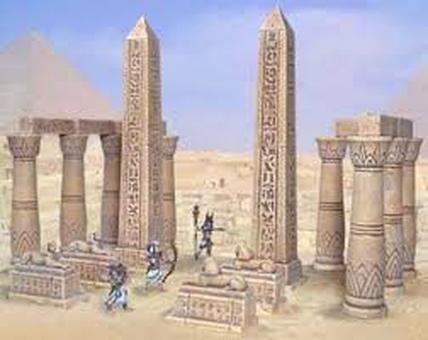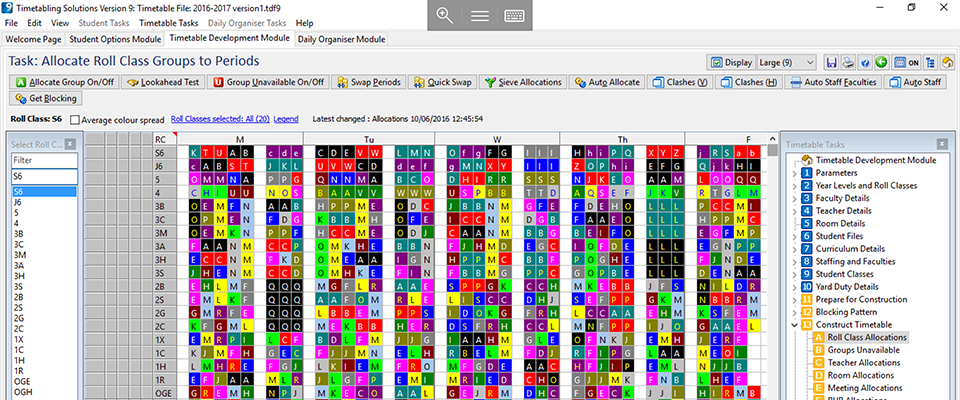Before this lecture, I had never really considered the link between maths, time, computing and gaming. Whilst I have always known that time obviously requires maths, I hadn’t thought much about what life was like before mechanical clocks.
 Before clocks existed, many people relied on nature to grasp the concept of the passing of time. For example, the movement of the sun across the sky would indicate day and night. It is believed that in the past, ancient people divided the sun’s cycle into different timekeeping periods. For example, the ancient Egyptians built tall obelisks that would cast shadows to help divide the day into sections (Wonderopolis, 2017). We watched an interesting video on an elephant water clock in class (Luppino, 2015). I was fascinated by the mechanics and level of maths behind this to make everything work at the right time.
Before clocks existed, many people relied on nature to grasp the concept of the passing of time. For example, the movement of the sun across the sky would indicate day and night. It is believed that in the past, ancient people divided the sun’s cycle into different timekeeping periods. For example, the ancient Egyptians built tall obelisks that would cast shadows to help divide the day into sections (Wonderopolis, 2017). We watched an interesting video on an elephant water clock in class (Luppino, 2015). I was fascinated by the mechanics and level of maths behind this to make everything work at the right time.
Isn’t it just incredible how many different units of time we have? From milliseconds to centuries, minutes to years, it is so vast. We also looked at the idea of other planets and how their idea of time is different to ours e.g. 1 day on earth is 24 hours whilst 1 day on Venus is equivalent to 116 days 18 hours on earth. This all depends on how long it takes the planet to rotate on its own axis. A year on a planet depends on how long it takes for the planet to complete one full orbit around the sun. This is something which could be explored within the classroom where pupils investigate the idea of time on different planets and compare them.
 Whenever I was younger, I used to think that the whole world was at the same time of day as me. Obviously, I later discovered this was incorrect. The idea of time zones is just amazing and very relevant for me. I have several family members in Canada including my brother and friends in places such as New Zealand. It is therefore necessary for us to consider each other’s time differences before we Facetime. This is especially strange with Kiwis as they are 13 hours ahead which means they are often a day ahead in a sense.
Whenever I was younger, I used to think that the whole world was at the same time of day as me. Obviously, I later discovered this was incorrect. The idea of time zones is just amazing and very relevant for me. I have several family members in Canada including my brother and friends in places such as New Zealand. It is therefore necessary for us to consider each other’s time differences before we Facetime. This is especially strange with Kiwis as they are 13 hours ahead which means they are often a day ahead in a sense.
 Maths is crucial in timetabling as you need to schedule different lectures for different times and ensure that no room or lecturer is double booked. This is a complex process and something I don’t think I could do! The idea of sitting with pages of names, subjects, rooms and lecturers to sort into a timetable just freaks me out! Would it be easier to use computer timetabling to get an automatic timetable for all students and lecturers? Whilst it would probably be a lot easier and quicker, there would be a lack of personal touch in that nobody wants a 4-5pm lecture on a Friday! Furthermore, a lecture could finish at 11am in the Tower Building and the next one start at 11am in Dalhousie. There is no way you could make it to lectures on time if this was the case.
Maths is crucial in timetabling as you need to schedule different lectures for different times and ensure that no room or lecturer is double booked. This is a complex process and something I don’t think I could do! The idea of sitting with pages of names, subjects, rooms and lecturers to sort into a timetable just freaks me out! Would it be easier to use computer timetabling to get an automatic timetable for all students and lecturers? Whilst it would probably be a lot easier and quicker, there would be a lack of personal touch in that nobody wants a 4-5pm lecture on a Friday! Furthermore, a lecture could finish at 11am in the Tower Building and the next one start at 11am in Dalhousie. There is no way you could make it to lectures on time if this was the case.
 Whilst at school, I studied A level Applied ICT. This involved creating a game, another aspect of computing that requires maths. The idea of direction was crucial in my game as it was a maze game. The number of coins that were collected needed to be calculated up and the character needed to only be able to move within the game path. I also used the programme Scratch where I created Sprites. This involved programming the sprite to move X steps in a particular direction and turn different angles. This is something I would definitely consider using in the classroom to allow children to see basic maths in action within gaming.
Whilst at school, I studied A level Applied ICT. This involved creating a game, another aspect of computing that requires maths. The idea of direction was crucial in my game as it was a maze game. The number of coins that were collected needed to be calculated up and the character needed to only be able to move within the game path. I also used the programme Scratch where I created Sprites. This involved programming the sprite to move X steps in a particular direction and turn different angles. This is something I would definitely consider using in the classroom to allow children to see basic maths in action within gaming.
I do not have a huge interest in maths in computing, however, I believe that it is an important part to teach as this may be an area of interest for some children in my class. This could spark learning and be a great tool to help them engage. Without a doubt, many children are keen on video and computer games nowadays which if brought into the classroom to explore maths could be a successful lesson. I think it is important to let children explore the ideas themselves before coming together to discuss them.
Luppino (2017) THE ELEPHANT CLOCK for “Science in a Golden Age” (Aljazeera English). Available at: https://vimeo.com/146231543 (Accessed: 11 November 2017).
Wonderopolis (2017) How Did People Keep Time Before Clocks?. Available at: https://wonderopolis.org/wonder/how-did-people-keep-time-before-clocks (Accessed: 11 November 2017).

